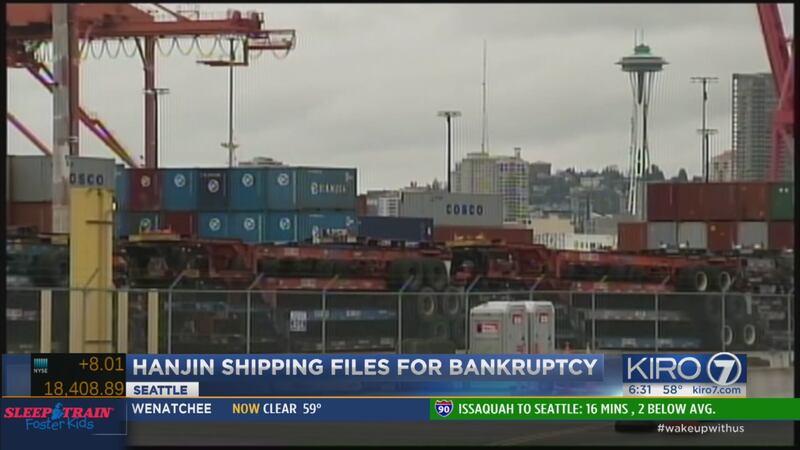It’s far too soon to panic in the Pacific Northwest, but the future of one of the Port of Seattle’s biggest customers – Hanjin – is up in the air because of bankruptcy.
Fast facts:
- Terminal 46 was dedicated to the South Korean company Hanjin Shipping.
- As of Wednesday afternoon, the Port is no longer receiving Hanjin containers --imports or exports--until further notice.
- Many ports are doing the same, for fear Hanjin won't be able to pay its bills.
- As a result, cargo owners are wondering about the fate of their shipments that could be caught in limbo for weeks or months.
- According to shipping insiders, a Hanjin bankruptcy would be the industry's largest ever.
A Hanjin ship is due in port on Saturday, but Terminal 46 in Seattle is not currently accepting any deliveries from the company, according to Tara Mattina of the Northwest Seaport Alliance.
"You've got ships coming in right now with goods that are supposed to get on boats and trucks and rail and go to stores," Eric Schinfeld, the president of the Washington Council on International Trade said Thursday. "So, if we don't get this resolved pretty soon," consumers will notice it "as soon as this week."
%
%
According to Schinfeld, 70 percent of cargo that comes to Seattle and Tacoma continues on to other states, impacting consumers nationwide.
Also -- if Hanjin ships aren’t offloading at the Ports of Seattle and Tacoma, they also can’t export apples, cherries and other Washington goods --- which would impact local businesses in the short-term if the situation isn’t resolved.
Long-term, Schinfeld said it could be worse for local ports because Hanjin has imported and exported here for years.
If the South Korean company is not allowed to restructure, or if it’s bought-out, that new company may not choose to do business in the Puget Sound.
"I think the biggest risk for our state is that we've got another shipping line that might buy Hanjin and say, 'You know what, we're going to route most of this cargo through British Columbia or through LA/Long Beach,'" Schinfeld told KIRO 7. "That would, of course, be (the) worst case scenario, and we're not predicting that yet. We really have to see what happens in the next few weeks and months."
Cox Media Group








